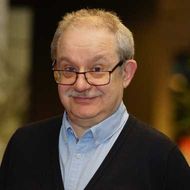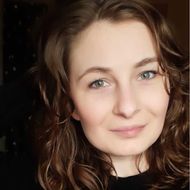- A
- A
- A
- ABC
- ABC
- ABC
- А
- А
- А
- А
- А
- HSE University
- Faculties
- Faculty of Social Sciences
- School of Sociology
- Events
- International Research Seminar in Sociology: “Exploring the “Public” Side of the Public-Private Divide: Budget categories, informal practices and the institutional roots of post-Soviet Governmentality”
Address: 101000, Moscow,
11 Myasnitskaya Ulitsa.
Phone: 8 (495) 772-95-90 *12349
Email: izangieva@hse.ru
The School of Sociology aims to train future social analysts in sociological reasoning to address the needs of social life, business, politics, public administration, and the media. To this end, the school works to develop a close link between education and research, as well as application-oriented education, internationalization of research and education, and close networks with major employers on the labour market.
In press
Abashkin V., Abdrakhmanova G., Vishnevskiy K. et al.
M.: HSE, 2025.
Nastina E., Tormos R.
International Journal of Comparative Sociology. 2025. P. 1-22.
Aristova N., Chadeev V., Iakimova O.
In bk.: 2024 17th International Conference on Management of Large-Scale System Development (MLSD). IEEE, 2024. P. 1-4.
OSF, 2024
Address: 101000, Moscow,
11 Myasnitskaya Ulitsa.
Phone: 8 (495) 772-95-90 *12349
Email: izangieva@hse.ru

International Research Seminar in Sociology: “Exploring the “Public” Side of the Public-Private Divide: Budget categories, informal practices and the institutional roots of post-Soviet Governmentality”
Abstract
In 1977, T.H. Rigby famously described the apparently seamless merging of public and private spheres within the Soviet system as the "mono-organization society." This was, he argued, because "nearly all social activities are run by hierarchies of appointed officials under the direction of a single overall command." In accordance with this interpretation, post-communist transition, and in particular the privatization of industry, has been seen as the creation of "public" and "private" actors in place of the old "mono-organizational" state-cum-society mix. Scholars as well as practitioners focused most attention on the emerging "private" part of the divide: thus, in designing their reform program, standard-bearers of the Washington consensus called above all for "depoliticizing the economy." But at the same time, the transition of the public sector itself has been equally fraught with ambiguity. Just as "commercial" entities were slow to depoliticize, many executive bodies have been slow to divest themselves of tasks more properly performed by the private sector, retaining or expanding commercial activities in addition to their (old or new) administrative/regulatory functions.
For all the initial heuristic value of Rigby's framework, I will argue that an overly simplistic understanding of Soviet society as "mono-organizational" may keep us from understanding the complex nature both of the Soviet past and of administrative transition. In actual reality, underneath this Rigby's "single overall command" lay deep institutional divisions. Rather than a single form of organization extending across the whole of society, there were clearly separate organizational spheres within the command economy, often associated with the mode of financing (budgetary vs. self-funded or cost-accounting based). As I hope to demonstrate, distinctions of this kind were not merely formalistic, but instead proved extraordinarily consequential both on a structural and on a normative level. Separate organizational spheres and mechanisms set up in Soviet times formed the basis for the emergence of genuinely independent structures in the post-Soviet period, as can be seen for example in the emergence of semi-private security services from the Soviet era vnevedomstvennaia okhrana. Even more importantly, Soviet notions of publicness deeply influenced post-Soviet reactions of what were, and what were not, considered legitimate spheres of activity for public organization.
Barbara Lehmbruch has been a researcher at the Centre for Russian and Eurasian Studies at Uppsala University, Sweden since 2014. Before joining UCRS as a researcher, she held previous research and teaching positions at Munich, Tübingen and Rotterdam universities as well as visiting research appointments in Helsinki and Vienna; she has also worked as a development consultant in Tbilisi, Georgia. Her main research interests include public administration reform and comparative and international political economy, as well as aid effectiveness and the European Neighborhood Policy. She holds a Ph.D. in Political Science from the University of California at Berkeley as well as a Magister Artium in East European History and Slavic Philology from Tübingen University, Germany.
- About
- About
- Key Figures & Facts
- Sustainability at HSE University
- Faculties & Departments
- International Partnerships
- Faculty & Staff
- HSE Buildings
- Public Enquiries
- Studies
- Admissions
- Programme Catalogue
- Undergraduate
- Graduate
- Exchange Programmes
- Summer Schools
- Semester in Moscow
- Business Internship
-
https://elearning.hse.ru/en/mooc/
Massive Open Online Courses
-
https://www.hse.ru/en/visual/
HSE Site for the Visually Impaired
-
http://5top100.com/
Russian Academic Excellence Project 5-100
- © HSE University 1993–2025 Contacts Copyright Privacy Policy Site Map
- Edit



